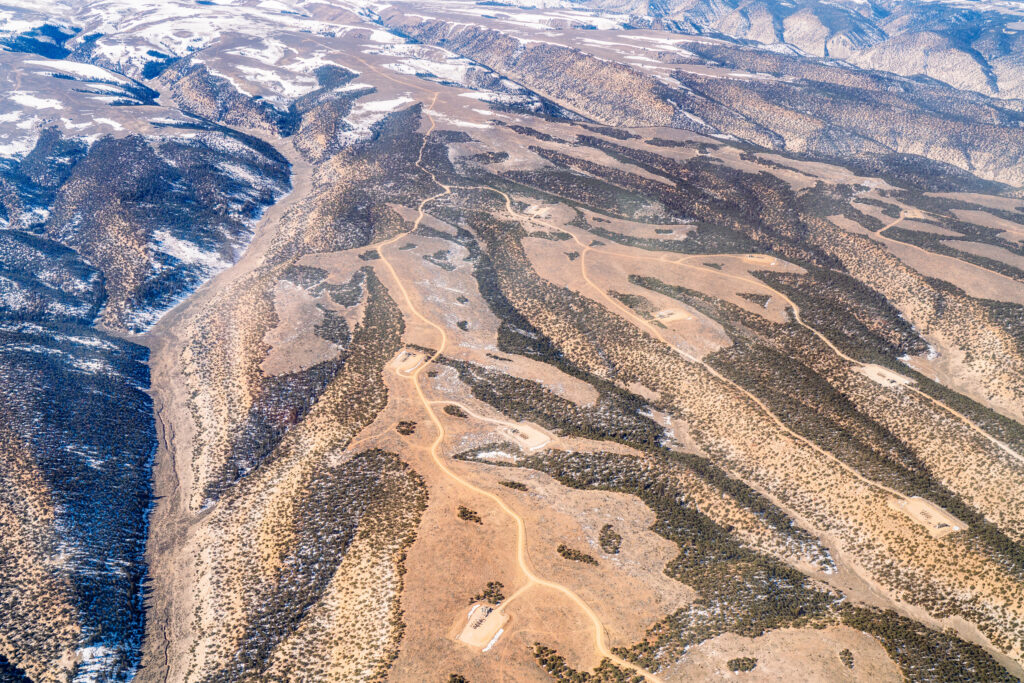A legal battle over an 88-mile proposed railway in Utah has reached the U.S. Supreme Court, potentially changing how federal agencies evaluate environmental impacts for projects requiring approval. The court will hear arguments in the case of Seven County Infrastructure Coalition v. Eagle County on Dec. 10, revisiting a prior U.S. Court of Appeals decision. This decision overturned the approval of the railway, citing the failure to assess the project’s downstream impacts, following a lawsuit by environmental groups and Eagle County, Colorado.
The coalition of seven Utah counties appealed, and the Supreme Court will determine the extent of impact evaluations required under the National Environmental Policy Act (NEPA) for the 88-mile railway. The Uinta Basin Railway aims to connect Utah’s oil fields to the national rail network, running alongside the Colorado River for over 100 miles to Gulf Coast refineries. Proponents argue it would boost the regional economy by quadrupling waxy crude oil production, while detractors worry about worsening air quality and environmental impacts on downstream areas, including Colorado and the Gulf Coast.
Dr. Brian Moench, president of Utah Physicians for a Healthy Environment, criticized the project, suggesting it primarily benefits oil company CEOs at the public’s expense. The Supreme Court decision won’t finalize the railway’s fate but will likely influence the scope of NEPA analyses. The appeals court found that the Surface Transportation Board also breached the Endangered Species Act and the Interstate Commerce Commission Termination Act. The case has attracted attention from industry groups, state attorneys general, law professors, and advocacy groups.
NEPA, enacted in 1970, is a foundational environmental law requiring federal agencies to ensure harmony between human activities and nature. Any significant project under federal oversight must undergo a NEPA review. Supporters see it as crucial for preventing detrimental projects, while critics find the process overly cumbersome, especially regarding energy transition projects.
John Ruple, a law professor at the University of Utah, described the case as central to environmental impact analyses, likening it to a driver deciding how far to look before proceeding at an intersection. The Uinta Basin Railway project did not comment, but its supporters claim the economic advantages outweigh environmental concerns. Keith Heaton, director of the Seven County Infrastructure Coalition, expressed optimism about the Supreme Court’s review and emphasized the project’s economic importance.
Opponents argue the case is another instance of the Supreme Court involving itself in issues better resolved by Congress. It could have significant environmental ramifications, similar to a recent decision to overturn the Chevron Doctrine. Justice Neil M. Gorsuch recused himself due to a potential conflict of interest with a benefactor of the railway project. An oil and gas company affiliated with billionaire Philip F. Anschutz, linked to Gorsuch, submitted a brief urging limits on NEPA.
Sam Sankar of Earthjustice criticized the case as an effort to weaken environmental laws, reduce community input, and limit government transparency. The railway, initiated by Utah’s Seven County Infrastructure Coalition in 2014, collaborates with Rio Grande Pacific Corp. and Drexel Hamilton Infrastructure Partners. It faces opposition over potential increases in greenhouse gas emissions and risks to the Colorado River from oil spills. Eagle County, with support from other Colorado counties and officials like U.S. Sen. Michael Bennet, filed a lawsuit against the Surface Transportation Board’s approval of the project.
Communities in Colorado are already experiencing climate change effects, such as flooding and wildfires. Increasing oil production, opponents argue, will exacerbate these issues. Deeda Seed from the Center for Biological Diversity emphasized the need for comprehensive examination of the railway’s consequences, which she believes hasn’t been done.
The Uinta Basin, located in northeastern Utah, suffers from significant air pollution. A 2014 study highlighted that emissions of volatile organic compounds in the region equaled the emissions of 100 million cars in one winter. The region’s oil and gas wells also have higher methane leak rates than the national average, contributing significantly to greenhouse gas emissions.
The area’s air pollution came under scrutiny when a nurse midwife in Vernal noticed increased infant deaths, prompting a review that showed higher-than-average mortality in 2013. Dr. Moench criticized the Surface Transportation Board for not considering the railway’s downstream effects, likening it to regulatory oversight failures in other sectors.
Original Story at insideclimatenews.org
